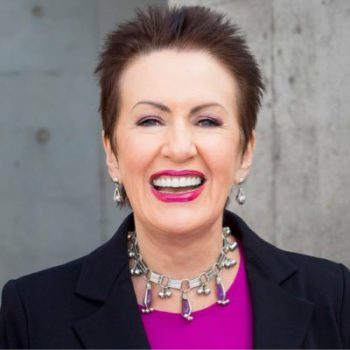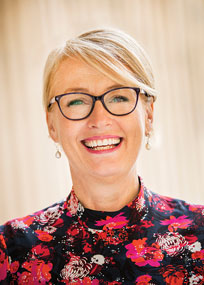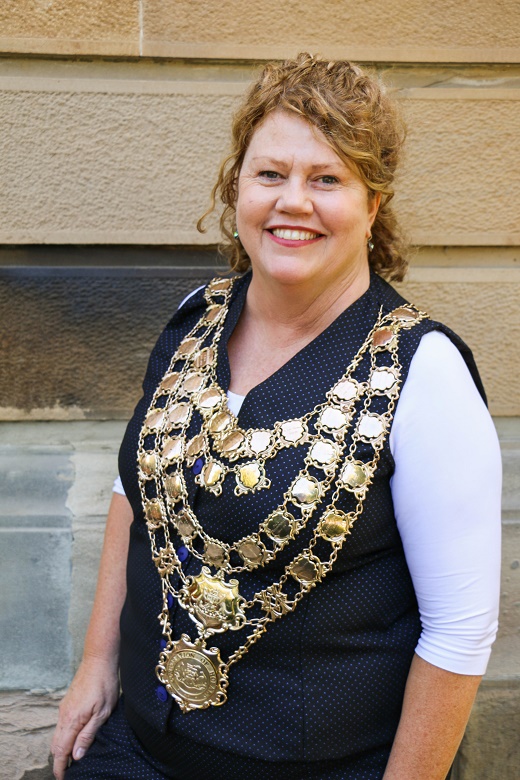Lord Mayors of Australian capital cities have reflected on the lessons and way forward following the pandemic.
During a recent panel discussion hosted by CEDA, Lord Mayors from Sydney, Melbourne, Adelaide and Hobart explored the adage “never waste a crisis” in relation to their experience with and recovery from COVID-19.

A key outcome of confronting the crisis was increased collaboration at both an international and local level, the mayors said, including through global networks like the Council of Capital City Lord Mayors (CCCLM).
Adelaide Lord Mayor Sandy Verschoor Verschoor said the CCCLM increased its usual yearly check-in to once a week and discussed a range of issues including financial challenges, retail recovery, homelessness and the toll on festivals and events.
“It was not only a way of sharing information and exchanging what we were doing, but for me it was extraordinary to realise you weren’t alone in dealing with all of these things,” Cr Verschoor said during the discussion last month.
Melbourne Lord Mayor Sally Capp said she also participated in overseas networking with cities including Milan, Auckland, LA, Seattle and Chicago.
“To jump on those calls and see some of the chaos and havoc that was happening in other city environments gave me good perspective,” she said.
Stronger regional relationships

Many regional councils had already strengthened relationships with their city counterparts pre-pandemic as a result of bushfire responses, and the mayors predicted more of the same in the wake of COVID.
Cr Moore said she expected this to be particularly evident with regard to renewable energy, and City of Sydney had already made a start pre-Covid through agreements to purchase wind and solar energy.
“I think we will see in the future greater collaboration, not only from different levels of government but also that interaction city and regional local governments,” she said.
Working with the community
Cr Capp said the hard lockdown of Melbourne’s public housing towers had brought to light the importance of working with the community.
“What is showed was that efficiency in delivering services doesn’t always come from the top down,” Cr Capp said.
“At the end of the day the best services and the most support came when we let community leaders take control and tell us what was needed.
“There was a moment when we, and state government, completely flipped our approach.”
Housing and development
The pandemic brought a new focus on housing and homelessness, as well as the need to reinvigorate urban areas.

Cr Capp said in 2020 City of Melbourne approved some 800 planning applications worth about $2.3 billion representing investment confidence in both commercial and residential property.
However she said about 6,000 properties are currently available for sale or rent across the Southbank and Docklands areas and council is looking at how existing surplus accommodation can be made available for affordable and social housing.
“The sense that affordable housing has to be part of the key elements to our recovery is central,” Cr Capp said.
Hobart Lord Maor Anna Reynolds said the city had its best year of planning approvals for medium density residential developments in the CBC during 2020.
“The application activity was noticeable,” she said.
Cr Verschoor said Adelaide also had an “extraordinary number” of development applications and approvals, and is now focusing on affordable housing and looking at options including mixed use, build to rent and rent to buy.
Resilience
Another common theme during the discussion was the way COVID had highlighted the need for local government to be resilient and prepared for extreme and unexpected events.

Cr Reynolds said local government tends to be a “very rates-in-rates-out services organisation” where cash flow can easily a become problem.
“It was incredibly challenging to deal with financial shock of changes that we weren’t predicting,” she said.
“The financial sustainability of councils, and making sure we’re ready for shocks, for change, for extremes, is the biggest lesson out of this.”
Cr Capp said City of Melbourne was able to put forward a $190 rapid response fund at the start of the pandemic, highlighting the value of financial robustness
“These things will happen which you just can’t predict so you have to be ready,” she said.
The road ahead
Cr Capp said research suggests that cities that went hard in their health response to the pandemic, as was the case across Australia, were best placed for a quick economic recovery.
And in many ways COVID-19 had a silver lining, she said.
Cr Capp said Melbourne had accelerated its bicycle path delivery program, with 40 km done over the last eight months gained 150 new trees and shrubs had been planted around the city.
Clover Moore said talk of the demise of the city as a result of COVID is overstated.
She said a Property Council report given to Council in January showed a 45 per cent occupancy rate in Sydney, while Transport for NSW is reporting a 60 per cent return.
“I strongly believe that cities are going to remain the engine rooms of our economy,” she said.
Cr Moore said COVID has accelerated initiatives and trends that were already in train, including technological change and the nature work.
The same resolve, collaborative spirit and innovation must now be applied to tackling climate change.
“I think if we can take the learnings from COVID and apply them to climate change …. we know we’ll have a future,” she said.





Leave a Reply